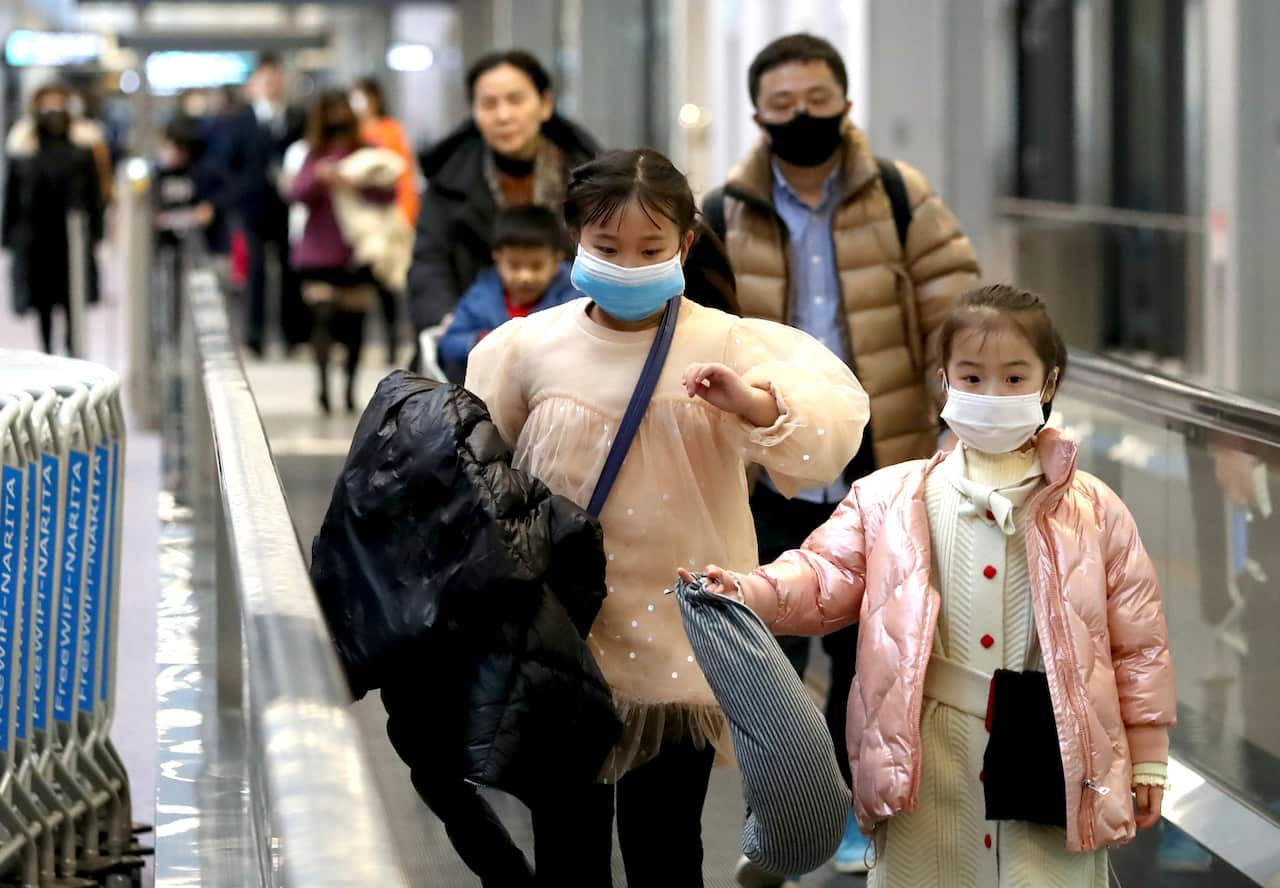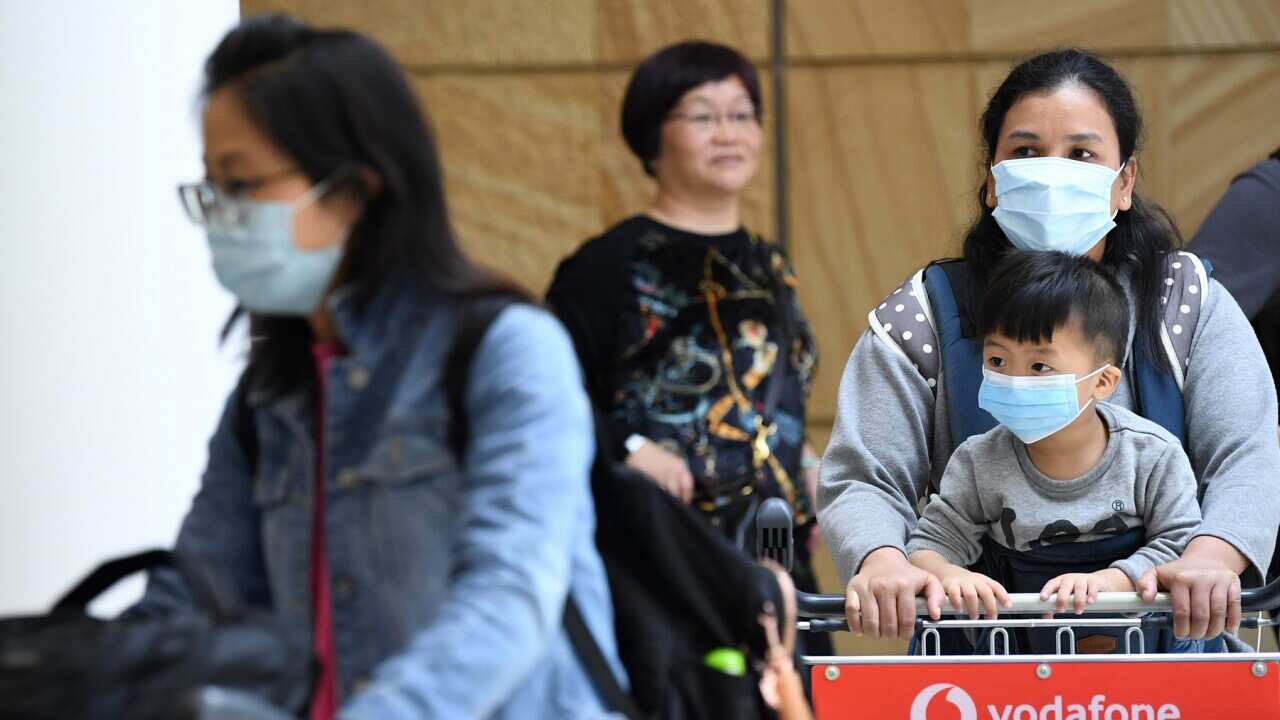A second central Chinese city is being put on lockdown to help control the spread of a virus epidemic that broke out in neighbouring Wuhan, authorities said Thursday. The train station in Huanggang, which has a population of 7.5 million and is 70 kilometres (40 miles) from Wuhan, will be suspended until further notice from midnight. All vehicles will be checked and bars and cinemas will be closed, said city authorities.
The train station in Huanggang, which has a population of 7.5 million and is 70 kilometres (40 miles) from Wuhan, will be suspended until further notice from midnight. All vehicles will be checked and bars and cinemas will be closed, said city authorities.

Medical workers in Wuhan form an "assault team" to battle against the deadly coronavirus epidemic. Source: AAP
The railway station in a third nearby city, Ezhou, which has a population of over one million, will also close from tonight, though no other measures were announced.
The coronavirus has already claimed 17 lives, infected hundreds and spread beyond China.
Earlier, passengers who made it out of epidemic-hit Wuhan just before quarantine measures effectively sealed off the Chinese city of 11 million spoke of shuttered stores and empty streets. One Japanese traveller arriving at Tokyo's Narita Airport described a deserted city in lockdown and said he did not know how he would get back in.
One Japanese traveller arriving at Tokyo's Narita Airport described a deserted city in lockdown and said he did not know how he would get back in.

Passengers wearing masks walk towards a quarantine inspection after a flight arrived from Wuhan at Narita International Airport, Tokyo. Source: AAP
"All stores have been shut since yesterday and no-one is in the streets. All the people are wearing masks," said Minoru Okada, a Japanese auto industry businessman in his 50s, who was returning for the Lunar New Year holidays.
"Buses and subways have all stopped services," he added, voicing concerns for his compatriots now stranded in the city.
"I'm supposed to return (to Wuhan) after the Lunar New Year but I don't know how it will actually turn out."
He said everyone on the three-and-a-half-hour flight was, like himself, wearing masks to avoid becoming infected. Asked what he had been doing to prevent infection, he said: "I wear masks and gargle."
Kazuyuki Kamei, 60, also in the car manufacturing industry, said he had been in Wuhan for three weeks, and travels to and from the Chinese city for business.
"I'm supposed to go back there next month but I have no idea if it will be possible," he said.
He told AFP his family were concerned about him staying in the epicentre of the virus.
"They've been worried about me. It wasn't a big issue when I went there," he said.
Mr Kamei said his firm had given staff instructions on hygiene and avoiding infection. "We are being careful... I have a lot of masks!"
'I'm worried'
Passengers arriving into Sydney on one of the last flights out of Wuhan were greeted by biosecurity officials, as a global effort to contain the outbreak ramps up.
The mask-wearing travellers were briefed on the symptoms of the novel coronavirus and handed leaflets explaining how to respond if they noticed symptoms of the contagious disease.
"They suggested (that) everyone wear their masks, and actually everyone was (already) wearing their masks... even the flight crew," said Kevin Ouyang, a 40-year-old father-of-two who was returning to his Sydney home after a business trip to China.
Australia's chief medical officer, Brendan Murphy, said no ill passengers had been found on the flight, which left Wuhan shortly before Chinese authorities placed the city under quarantine and barred all departing aircraft.
But Mr Murphy added during a press conference with Prime Minister Scott Morrison that because of its incubation period, travellers from Wuhan would need to continue monitoring themselves for flu-like symptoms.
"We need to contact a hospital," a woman passenger, who didn't give her name, explained when asked what she was told to do if symptoms arise.
Back at Narita, a Japanese businessman who declined to give his name noted the plane he was on was "probably the last flight out."
"I'm worried," he said.
Share


